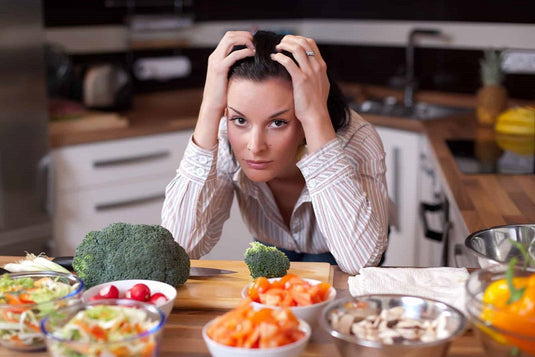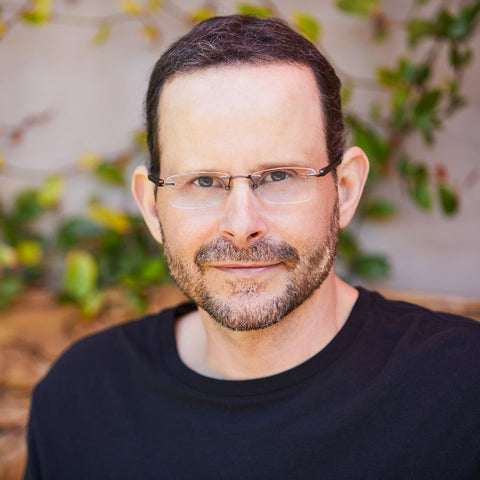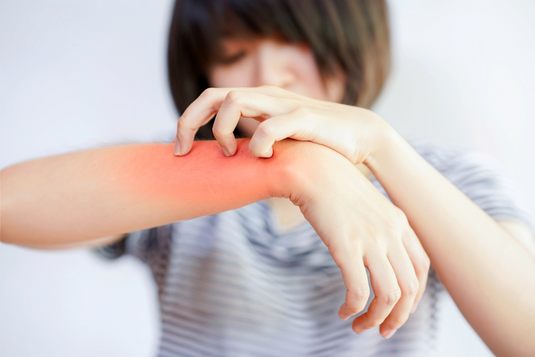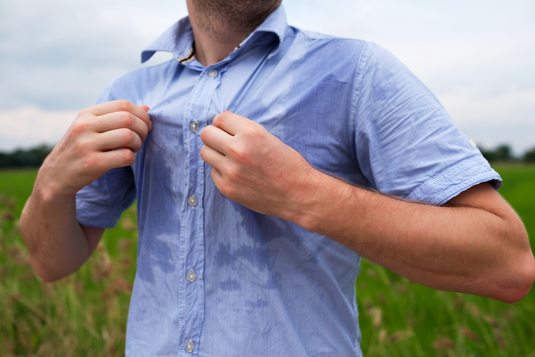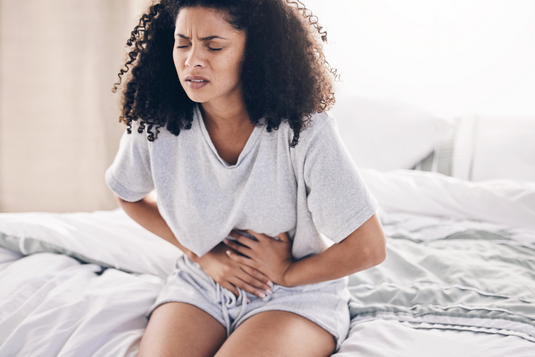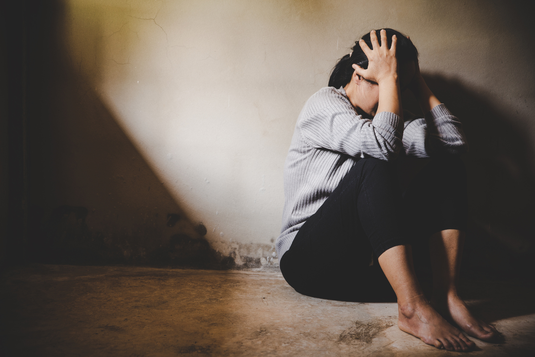In the 1980s, "healthy eating" was mainly associated with counting calories. At that time, even counting calories was not accepted by the mass consumer. Those who practiced this method received serious looks of bewilderment from everyone else. On the other hand, overeating, or what someone else considers overeating, has always been the subject of ridicule. There have always been concerns about over-indulging food fads.
But if you're someone who's gone a bit further than being concerned about calorie intake, ie. if you gave up fried foods, fatty foods, processed foods, or even canned foods and incorporated more salads, more fruits, more vegetables into your life, and maybe even thought about becoming a vegetarian, you would be considered human, who overdoes it. It was easy to be diagnosed with an eating disorder that was considered dangerous to both your mental and physical health.
In that period the term "temperance" was very popular. 40 years ago, it was that scientifically based theory - scientific justification: "It's normal to eat a little bit of everything your heart desires. As long as it's in moderation, it's all right." If you were aiming to eat lightly, this would have caused confusion. If you're someone who chooses carefully what to eat because you're concerned about your health, this would have raised red flags all over the place. There has been this fear in our society that if you choose a different way of eating, then there must be something terribly wrong with you.
Today we have more freedom in the way we eat. A mother who eats a plant-based diet and has even decided to practice raw food can try to feed her children a similar diet and not have her children deprived. It wasn't that long ago that many states, as well as every state in the US, could step in if there were too many signals that a plant-based mom was feeding her kids too much lettuce, nuts, seeds, and avocados. Make no mistake: many families have been destroyed by mothers being judged for how they care for their children. Over the years, all these cases are covered. Very few, if any, have been able to tell their stories. We take for granted what it took to get here and how many people had to suffer along the way to fight for health rights. Nowadays, it is much more accepted to eat in different ways, whether it is vegetarian, vegan, plant-based or any other nutritional diet. People can do whatever they want. Somewhat. These people may still end up with an orthorexic diagnosis.
Orthorexia is a term used to make people feel bad for eating a certain way and to make fun of people who avoid certain foods. Basically, if you are a person who has been sick for too long, visited many doctors with no results, and lost your normal way of life, so that you had to take your health into your own hands by choosing a certain way of eating, you can to be branded an orthorexic. Used in this way, this term is truly degrading, discouraging and depressing.
We act as if everyone has the freedom to eat and do whatever they want, and although that has improved over the years, there is still danger lurking around every corner trying to rob us of the chance to heal. When we pathologize someone's attempt at healthy eating, there is so much we don't see. What has this person been through? How many doctors has he seen? How many nutritionists, nutritionists, health professionals? What is his real health problem? What is the explanation for all the mysterious digestive problems, the mysterious fatigue, the mysterious brain fog, the mysterious skin conditions, the mysterious weight gain? Does anyone even know? None of this is paid attention to.
There is so much wrong with someone throwing blatant labels and terms at another. The person who puts labels on someone else doesn't even know what it took for that chronically ill person to get to where they are. What the whole eating journey cost them as they tried to find answers to heal. It is like a sacred process that the sick person goes through as he tries to heal himself because no one else can help him.
The stage you are in when someone labels you orthorexia is important. If you've found some answers, followed your path, gained more strength, and feel confident moving forward, it probably makes accepting that label a little easier. But you may be at the beginning of trying a certain new way of eating that is starting to work for you after being disappointed time and time again. Being accused of being an orthorexic can be discouraging and cause you to lose hope.
No one understands you because they haven't been in your shoes. The difficulties, the struggles, the other people in your life that you face or even when you have to fight for freedom and rights for your own health. So if you're ever given this diagnosis by a health professional or anyone else, it's easy to question everything you're doing or get upset because you're misunderstood again.
While it is now much more acceptable to eat a certain way to promote health, at the same time, the ghosts of the past still appear to haunt people. They show up when you're halfway to health and safety, and start to waver, disorient and discourage you with problematic thoughts like orthorexia. When you're making smoothies and caring about what goes into your smoothies, when you're taking herbs and choosing what fruits to eat that help you heal, and being careful about what you eat at a restaurant when you're traveling or at a friend's house, never think and for a minute that you're doing something wrong when it comes to overdoing your food choices for your health and healing. Health is everything. You should never feel ashamed while pursuing it.
You can be called an orthorexic no matter where you stand in terms of what you eat. You can be a bread-eating vegetarian and be called an orthorexic. You can be called an orthorexic if you eat in any way. There are so many types of eating disorders, most of which are not recognized by modern medicine. Of the very few defined eating disorders, orthorexia is one of them. If you are someone who tries to heal with food, you will often be called an orthorexic. No one should view their eating journey in a negative light while trying to heal.
It's one thing to point out the obstacles that could interfere with healing, information that is critical to the food you consume. It's a lot different than someone telling you, "You know, you're obsessed with food," because everyone is obsessed with food. Anyone who thinks they aren't obsessed with food is in denial. Everyone wants to enjoy what they eat, choose what to eat and have choices. Sometimes circumstances can mean that we have to change what we eat due to resources or availability - if we are in a difficult situation and cannot get what we want to eat, or if we are financially prevented from eating it , which we want. If circumstances and resources allow us to have choices, then we want to take advantage of those choices.
No one should be penalized for wanting to take good care of themselves using food as a means, no matter what direction they go. If someone wants to be mostly carnivorous for example, of course they will lack all the fruits they need. It lacks critically important healing starchy foods like potatoes. But still, he should not be blamed or called an orthorexic because he is obsessed with the idea of eating meat and only meat. He should never be shamed for it or told he has an obsession or an eating disorder based on that choice. The same goes for someone who only wants to eat fruit. Of course, it lacks green leafy vegetables, critical herbs such as celery stalk juice. They shouldn't be blamed, shamed, or called orthorexics while trying to solve the problem, or told they have an eating disorder just because they like to eat a certain type of food.
Young people in particular who complain of real symptoms—anxiety, strange sensations all over the body, fatigue—continue to be told, "Physically, you're fine. It's all mental." They start working on their food and get better, and then they're told, "No, you're obsessed with food." Being told that you're obsessed with healthy eating can turn you off. This discourages people from taking health into their own hands. Thus they remain dependent on modern medicine and pharmaceutical products.
For some people, the term "orthorexia" is an affirmation of the challenge of feeling "perfect" when it comes to food. It's true that no one should be blamed or shamed for not being "perfect" with food. Nobody is perfect. It only matters what is right for you and what allows you to eat in order to heal, live normally, survive, thrive and succeed in life. If you heal with food and then start to deviate from what you should be eating and find yourself getting worse again, you haven't failed. You can always go back to the way of eating that helped you stay healthy.
